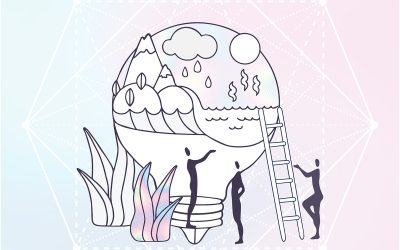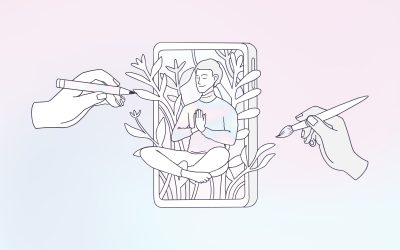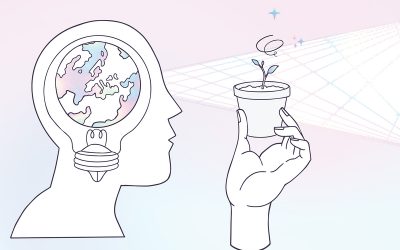Beth Pettengill Riley is a dancer, choreographer, yogi, author, and somatic educator. For over forty years, she has been teaching Continuum, a somatic movement and embodiment system developed by Emilie Conrad that explores how we live in, and move through, our bodies. Beth currently runs three separate programs on Sutra that explore Continuum—a seven-week group journey, an eighteen-month apprenticeship, and an ongoing membership circle. Whatever program her clients are moving through, everything they need is housed neatly and beautifully in private spaces on the Sutra platform—links to Zoom calls, discussion spaces for sharing as well as subspaces for work in more intimate groups, and audio recordings. Additional features like broadcast emails and participation insights support Beth in creating relational, healing spaces for her clients online.
Continuum is predominantly an oral tradition that has been passed on through the lineage of various teachers in a live, group format. In the midst of the Covid pandemic, there were challenging questions about how to transition this work. While Beth was a participant in Sutra’s Transformational Teaching Online program, she was inspired by the invitation to engage in transformational work in online spaces. In 2020, she turned a book she had written and published, A Moving Inquiry, into a seven-week online course that she hosted on Sutra; two more programs have evolved since.

Online spaces that honor relationships
In Sutra’s Transformational Teaching Online course (TTO), Beth learned how to create a friendly, online environment that also places an underlying value on human transformation within the relational space. As a participant in TTO, Beth experienced firsthand the possibilities of transformative online work; it was the first time she actually considered that this kind of work could be done online.
Beth was drawn to the heart of Sutra and the synchronicity of values she held with co-founders Lorenz and Natasha Sell. She experienced profound connection with them, as well as with fellow TTO participants. At that point in her career, given the pandemic, Beth was ready to stop teaching, but she liked what she saw—and felt—on the Sutra platform. She says, “I would not have done this without Sutra, very clearly.”
She recognized an opportunity to share her Continuum teaching in a unique way and immediately created her first program on Sutra, A Moving Inquiry. Following the model presented in TTO, the setup for her program was simple and intuitive. She found the process for uploading videos and documents straightforward, and was pleased with the aesthetic presentation.
Beth also sensed that the Sutra platform would be easy for her clientele to use—a clientele who tend to be older and who are digital immigrants. Sutra allowed her to create programs that are neatly organized, visually pleasing, and easy to navigate; this has helped her clients relax into being together online. At one point, Beth paid someone to put her material into a course on Teachable and she tried running it there, but she found the platform to be lacking—dry, less creative, and without allure for her clients. On Sutra, Beth’s clients feel at home in spaces that are relaxed, engaging, and pleasing to the eye.
Creating a member space and an apprenticeship program
Responding to interest from participants of A Moving Inquiry, Beth developed a member circle for graduates wishing to continue their Continuum practices, A Moving Inquiry Membership Space. To create her membership space, Beth duplicated the original course so that members have permanent access to course materials; she then created discussion spaces for members to stay in touch. From time to time, she shares new video practices with the members.
Another community that has grown is Beth’s apprenticeship program, Soul of Continuum. Working with two other Continuum teachers, the program is eighteen months long and supports participants as they dive more deeply into Continuum work, as well as learn how to share the Continuum practice with others. Like her other programs, Soul of Continuum holds everything participants need in one place, making participation in the program streamlined, focused, and supportive. Discussion spaces and subspaces—where smaller groups can work, practice, and teach together—create cohesion and continuity for the duration of the eighteen-month program.
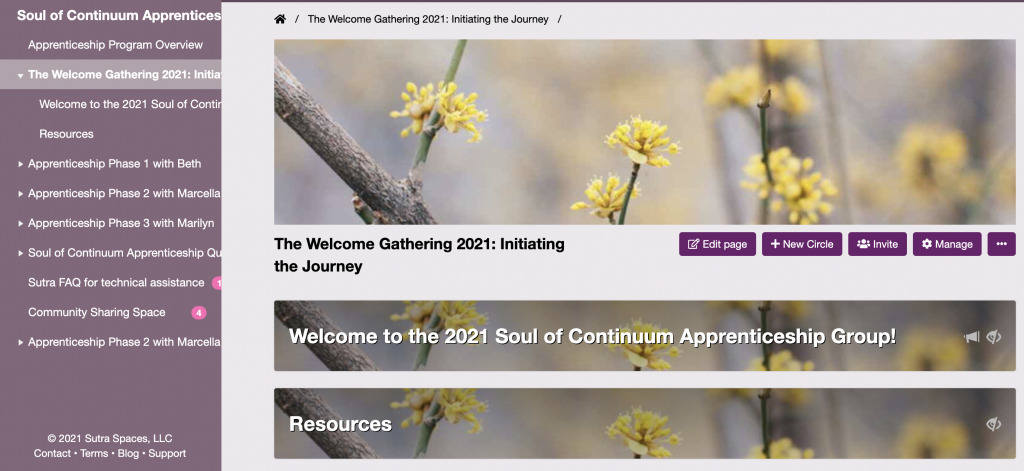
Organization of course material is particularly efficient for Beth and her Soul of Continuum colleagues who each complete a teaching segment before the next teacher begins. Beth and her colleagues can readily see what each person has taught and can add their own materials accordingly—videos, audio recordings, and written materials. Beth says, “I feel like, really, the potential is unlimited.”
The invitation to heal in community
Originally, Beth’s personal path was a more ascetic one that included yoga and ten years of mountain living on her own. Through the practice of Continuum, she eventually recognized that the greatest growth for her, and she believes this is true for others, lies “within communication—being witnessed, being heard, being seen, being valued.” Growth occurs in learning to be in the experience of our own bodies while also receiving the experience of another person; it occurs in the relational space.
Having experienced this for herself, Beth has spent the past forty years extending this work to others. Bringing her Continuum programs to Sutra, Beth now has the ability to touch the lives of people from all over the world.
Beth creates safe, online spaces where her students learn to experience what is alive in their bodies while also being present to the experience of others. In group Zoom sessions, she invites clients to connect with their deeper truth, to experience the whole body, and to connect with each other from that embodied experience. She says, “isolation is one of the biggest plagues that we have in modern life” but it is possible to create collective, shared experiences of physical wellbeing. Beth does exactly that. The connections forming in her Zoom sessions, and within the discussion spaces on Sutra, are rich, collective, and deep.
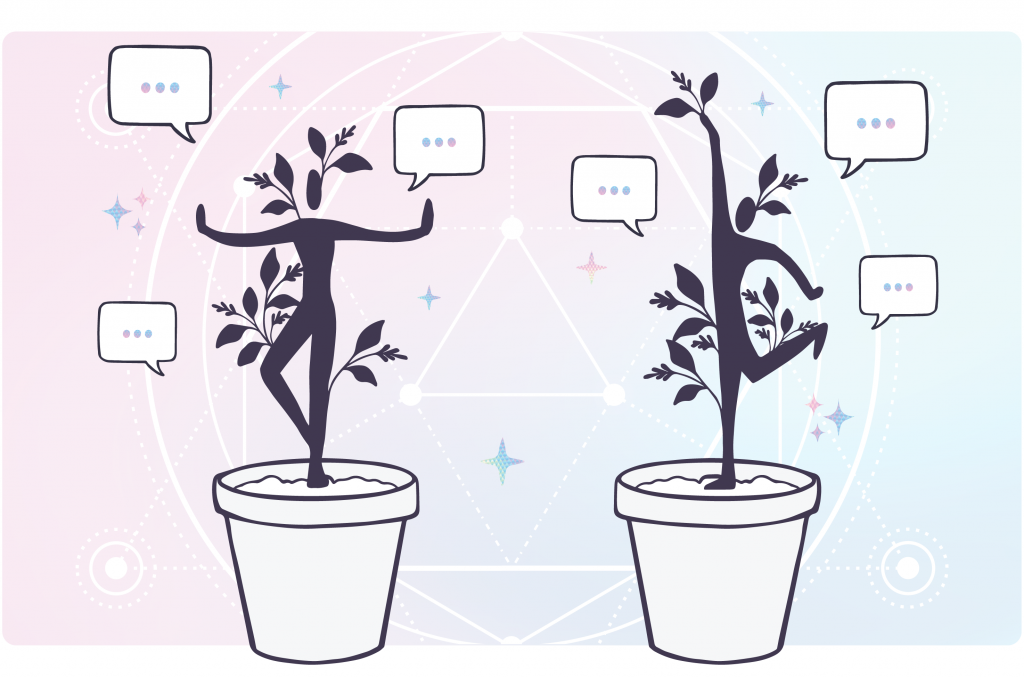
Sutra features that support engagement
In her private discussion spaces, Beth’s clients gather as a community and stay in contact between Zoom sessions. Participants who chose to receive daily digest emails of these conversations see that the classroom isn’t a simple bulletin board where you look, read, then go away. Rather, there’s the sense that there’s something alive, that fellow humans are participating, engaging, connecting—in real time. This active engagement among participants keeps the program feeling fresh.
Another feature that helps Beth support engagement is her ability to see the progress of people moving through course material and being able to offer guidance as needed. If someone is moving at a pace that might make completion of the course difficult, Beth can reach out to offer support to that individual. This participation insights feature helps her gauge the level of engagement with course material as well as engagement within the community itself.
Beth especially loves Sutra’s broadcast feature which lets her send emails to program participants. She has a record of all the program emails she’s sent and can easily duplicate and edit past emails to send out for current programs. The broadcast feature allows Beth to streamline her communication—which frees her time to engage and dive deeper with her clients.
Fostering a sense of belonging
The community aspect of Beth’s work is vital. Because many life issues happen in relationship, healing these issues in relationship is powerful. Beth explains that the body responds well to continued, loving presence, and that the amplification of loving presence in community is perhaps the most important part of her work.
The experiences Beth creates for her students online extend to daily living. Even when she and her students are not on a call together, there is a certain energy field that is created when everyone is practicing on their own, on a regular basis. This is a field of support that extends beyond the social aspect of gathering on Zoom calls and within discussion spaces. It is a belonging that lives in their shared experience.
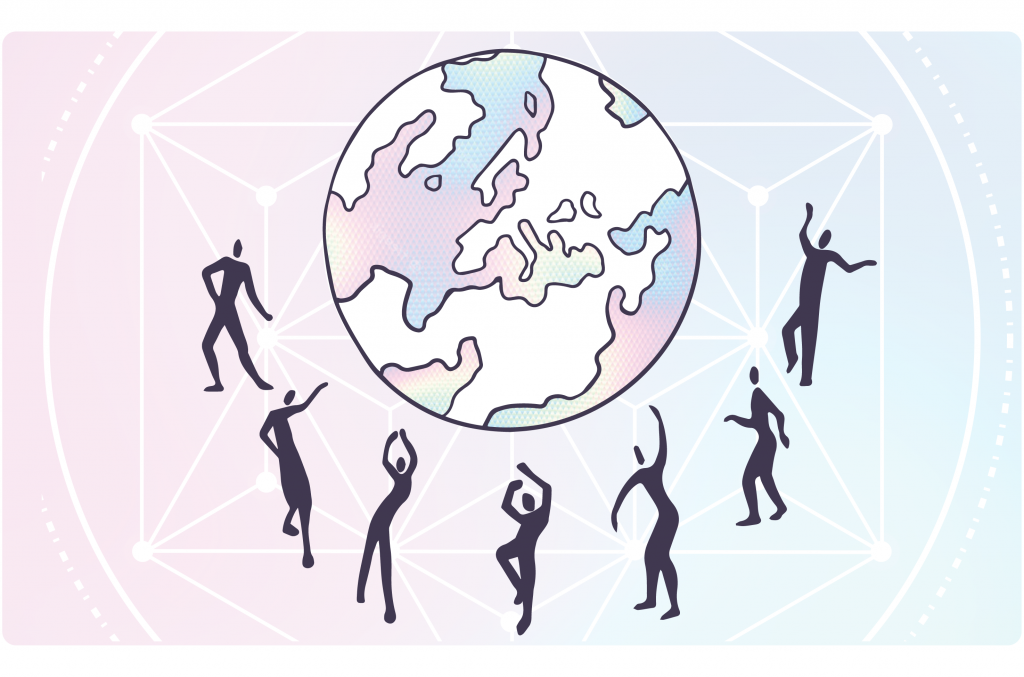
Tips for creating transformational work online
When asked if she had any tips for creators interested in developing work rooted in online community and relational spaces, Beth recommended starting with Sutra’s Transformational Teaching Online program. TTO helped her understand what’s possible in the online space and it showed her how to deliver her work in a truly transformational way.. She says, “Take a chance. Go for it. Ask for support. And try something.”
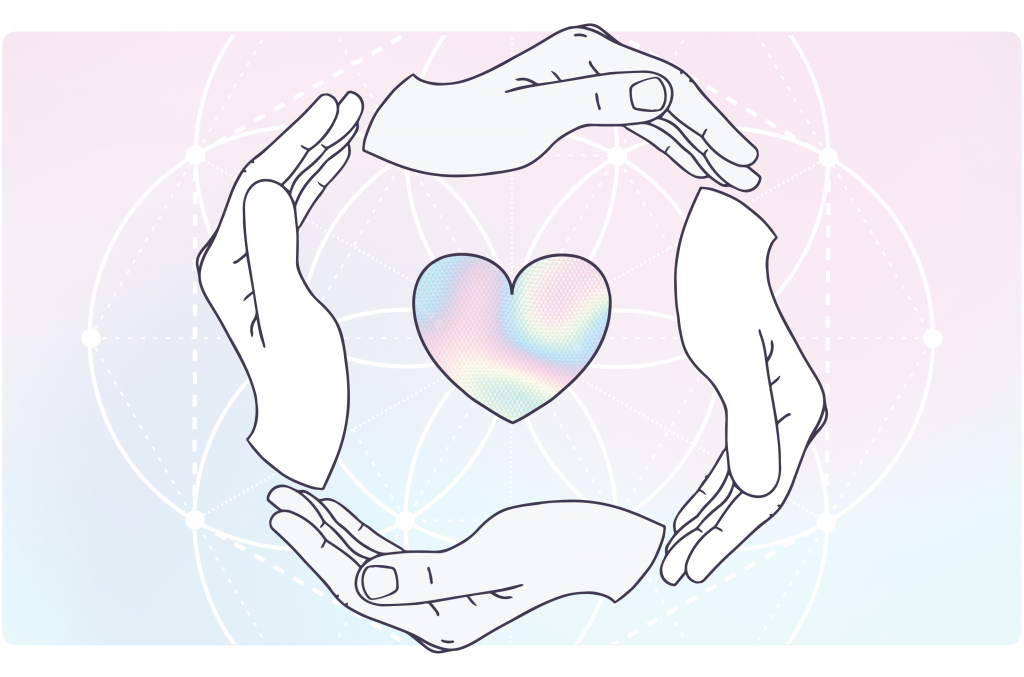
What’s next?
Beth has plans to create a new program that combines yoga and Continuum. In addition to that, she plans to put more of her energy into creating support for clients in her membership space, A Moving Inquiry Membership Space. She will also continue her apprenticeship program, Soul Continuum, as well as her seven-week program, A Moving Inquiry.
She has trained two facilitators to run A Moving Inquiry. With course content in place on the Sutra platform, her facilitators can run the class using video clips of Beth teaching each segment; Fall 2022 will be the first iteration of Beth supporting a facilitator in this capacity. Moving forward, she’d like to offer A Moving Inquiry twice each year.
Because the work Beth shares is of an experiential nature, the informational material she posts in the content spaces of her programs are typically class outlines, recordings of guided meditations, and recorded videos. She sees growth for her programs in the area of content spaces, however, and is considering ways she might include more written material. Specifically, she is thinking about journaling prompts—perhaps using Sutra’s automated journey feature—in conjunction with discussion spaces where students can read and share their work.
